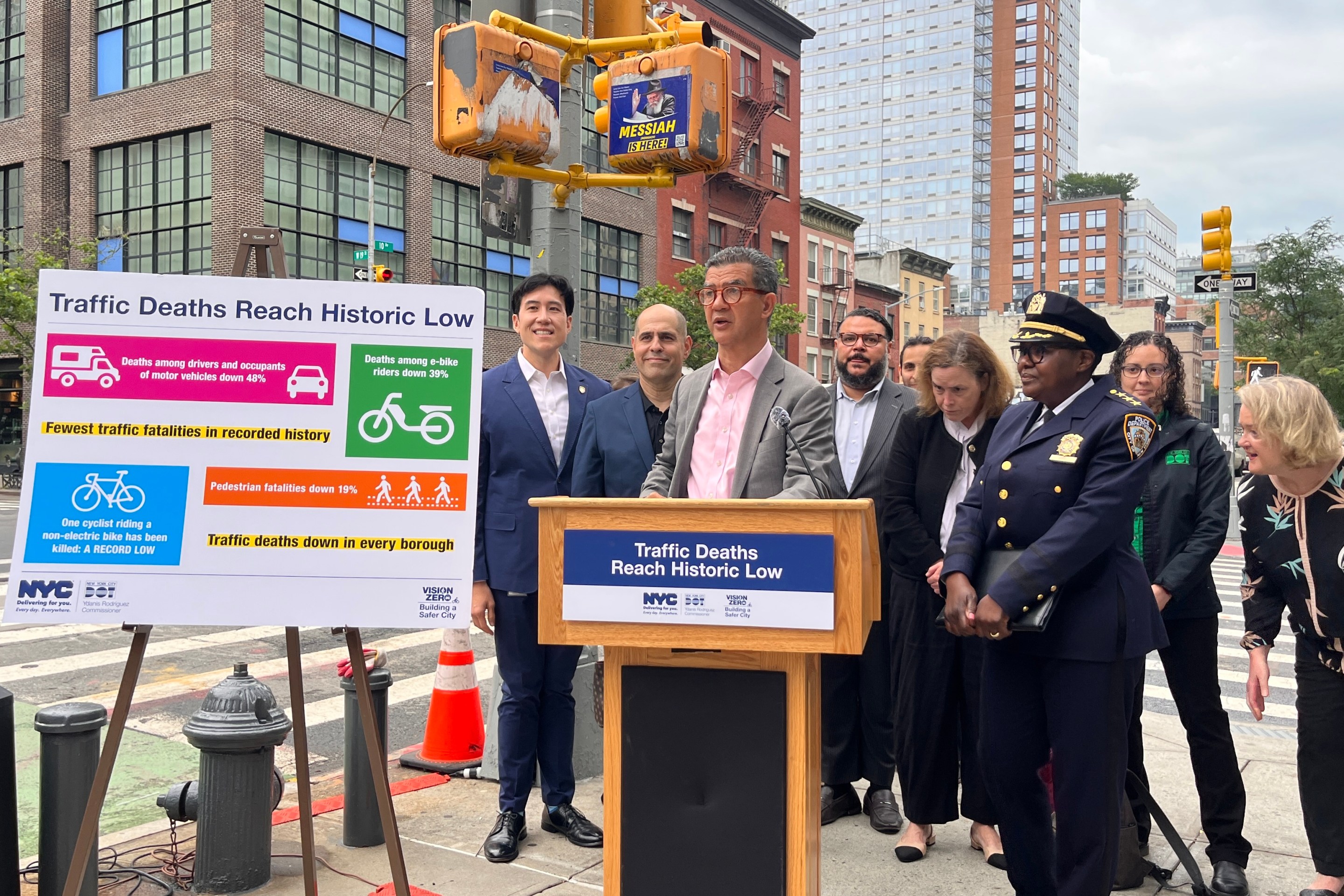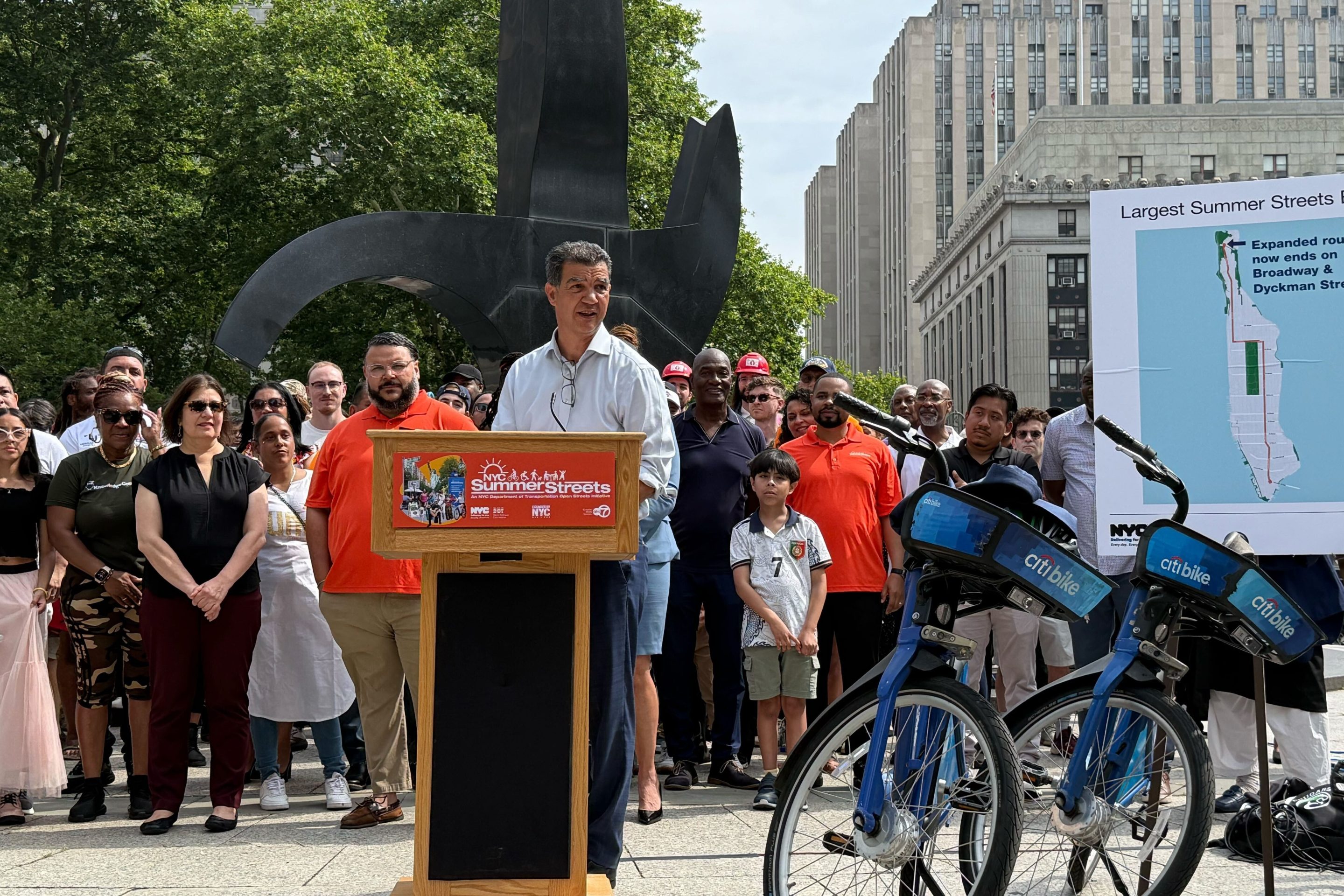House Transportation Committee Chair John Mica’s proposed transportation reauthorization bill includes $230 billion over six years, a reduction of 33 percent compared to spending levels in the last multi-year bill. The proposal, which he unveiled at a standing-room-only press event in the committee hearing room today, eliminates any federal guarantee (he calls it a “set-aside”) for bicycle and pedestrian programs, as part of his drive to consolidate the federal transportation bureaucracy. Transit will still get a 20 percent share of surface transportation dollars, compared to 80 percent for highways.
The bill still does not appear on the legislative agenda for the remainder of the time before the Congressional recess begins in August. Mica says he expects leadership to announce an extended session and shortened break. But even if it does, the extra time in session would probably be devoted to negotiating a deal on the debt ceiling and budget cuts – not passing a transportation bill.
A few weeks ago, Mica announced that this bill would be marked up July 12, but he’s now planning for a hearing on it July 12. It’s also unclear when bill text will be formally introduced. Some speculate that he won’t introduce the bill until it’s scheduled for a floor vote, since the longer it sits out there, the more it gets picked apart by critics.
To clear up a question I posed earlier, the bill calls for $35 billion of funding the first year with gradual increases until 2017, when $42 billion is allocated. The figures total $230 billion.
Mica claims that the $35 billion for the first year of spending in the bill magically becomes $75 billion when properly leveraged.
The bill calls for a major streamlining of the federal review process for new projects, shortening it from an average of 15 years to six. Rail Subcommittee Chair Bill Shuster said that some local officials say that federal projects cost up to 70 percent more than state and local projects because of the long review process. Mica says environmental interests won't be compromised. All the same reviews will take place, just concurrently, not consecutively.
The bill would, as we said earlier, support state infrastructure banks, rather than create a national entity. That support consists of a new rule allowing states to used 15 percent of their federal highway funding for the bank (up from 10 percent) and a “specific amount” of funding. He does include $1 billion a year for TIFIA, as does the Senate bill. The Bipartisan Policy Center, on the other hand, has suggested a cap of $450 million since, in its review of outstanding TIFIA proposals, it found that only about that many projects were worthy of federal loan guarantees.
The bill doesn’t include the proposal to privatize the Northeast Corridor, which has been introduced as a separate piece of legislation (and which Mica admitted was vastly unpopular). It doesn’t include any money explicitly for high-speed rail either.
Mica said many times that he and his colleagues would go before the Ways and Means Committee to discuss revenues but he wasn’t specific about what he’d ask for. He allowed that it would include some bonding, but wouldn’t comment specifically on Build America Bonds, and he admitted that the gas tax is an inadequate revenue source but didn’t commit to supporting a VMT fee.
We’ll get you more details and reactions in a bit. The proposal outline, which was handed out to attendees at the press event, is still not online but we’ll link to it as soon as it is.






